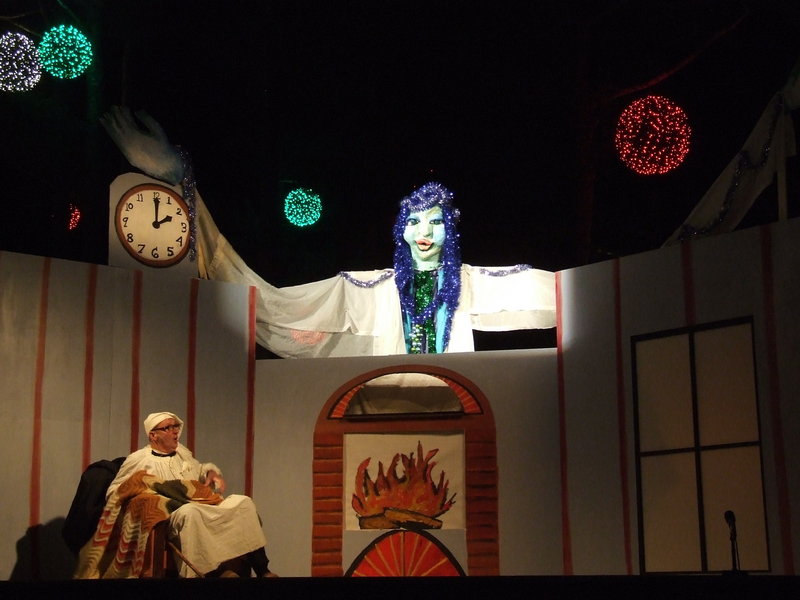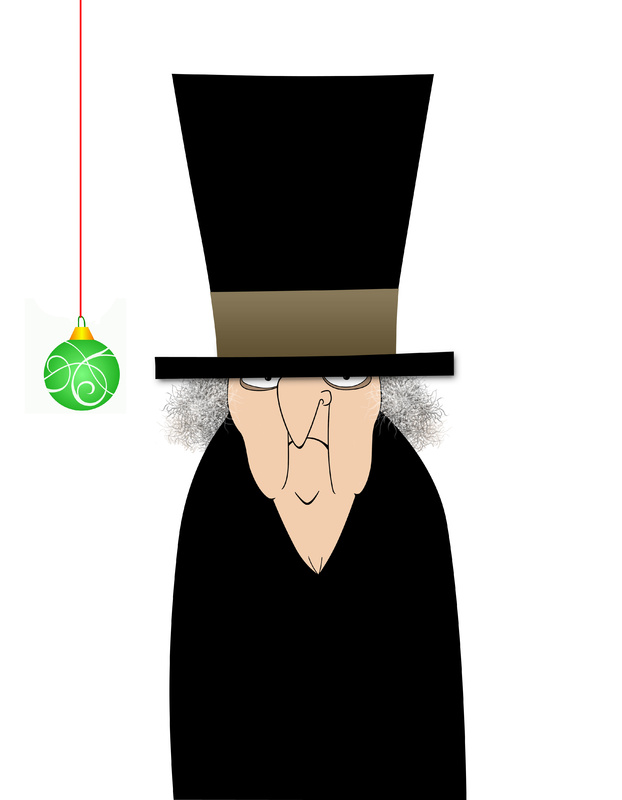If you’re seeking a last-minute infusion of holiday cheer, consider checking out the Shoestring Theater puppet production of Charles Dickens’ “A Christmas Carol” on Saturday afternoon and evening at Mayo Street Arts in Portland.
And don’t worry; it won’t take very long. This is the drive-thru version of Christmases past, present and future.
“It is scripted from the book with a few appropriate changes for the times,” said Shoestring founder Nance Parker. “That said, it’s a 25-minute version. We hit all the high points, all the low points and bang, bang, bang, you come away with the full meaning of Christmas.”
Parker adapted the Dickens classic for her puppet theater 20 years ago. She’s tweaked the show over the years, but it’s still mostly the same as when she staged it as a neighborhood presentation in Portland’s West End.
It involves a dozen or so human actors, both adults and children, as well as hand puppets, rod puppets, shadow puppets, carnival puppets and a stilt walker.
It’s intended for both children and parents. The kids should enjoy the spectacle and come away with the appropriate message. The adults might enjoy the political aspect of the show, said Blainor McGough, executive director of Mayo Street Arts.
“There are things in the show that are there for kids and things in the show that are there for adults,” said McGough, who interned with Shoestring way back when.
Dickens wrote “A Christmas Carol” as a political story, calling attention to the plight of the poor while tweaking the comfort of the rich, she noted.
Parker deftly updates that theme to keep it relevant today, and has done so every year for 20 years, McGough said. “There are just so many ways to make fun of the 1 percent and the politicians,” she said. “It’ so much about class and Uncle Scrooge.”
In Dickens’ story, Scrooge suggests he has no allowance for charity. He does not pity the poor, for they have union workhouses. Nor does he pity the destitute. “Are there no prisons?” he asks, dismissing a pair of “portly gentlemen” collecting donations to serve the needy.
“I don’t make merry myself at Christmas, and I can’t afford to make idle people merry,” Scrooge tells them.
To keep it timely, Parker updates those references to food stamps and subsidized housing. And instead of London, the Cratchit family lives on Munjoy Hill.
” ‘A Christmas Carol’ is a politically relevant piece of writing that makes very clear that Mr. Scrooge does not want to accept responsibility for anybody but himself,” Parker said. “He feels he has paid his taxes, and he is not responsible for anything that happens to others. It is society’s fault, he says.”
In the end, Scrooge changes. After he is visited by the Christmas ghosts, he remembers that he himself benefited from society’s generosity when he was a lad, and that it is indeed his responsibility to help those in need.
That message of redemption and Christmas joy remains firmly in place in the Shoestring production, Parker said.
“You come in, and 25 minutes later you feel like a changed person. Everybody feels great at the end,” she said. “I love that gift.”
Staff Writer Bob Keyes can be contacted at 791-6457 or:
bkeyes@pressherald.com
Twitter: pphbkeyes
Send questions/comments to the editors.





Success. Please wait for the page to reload. If the page does not reload within 5 seconds, please refresh the page.
Enter your email and password to access comments.
Hi, to comment on stories you must . This profile is in addition to your subscription and website login.
Already have a commenting profile? .
Invalid username/password.
Please check your email to confirm and complete your registration.
Only subscribers are eligible to post comments. Please subscribe or login first for digital access. Here’s why.
Use the form below to reset your password. When you've submitted your account email, we will send an email with a reset code.